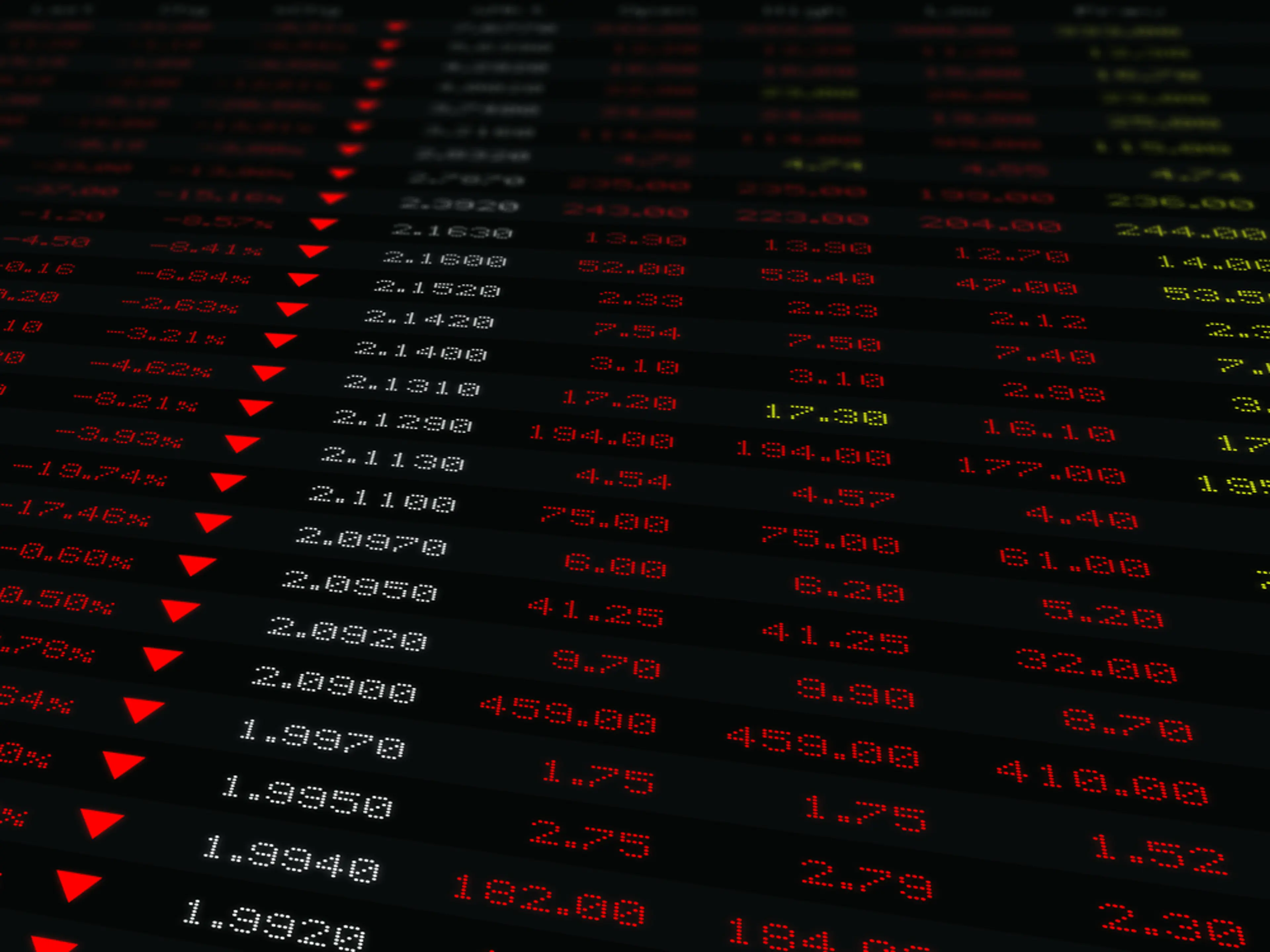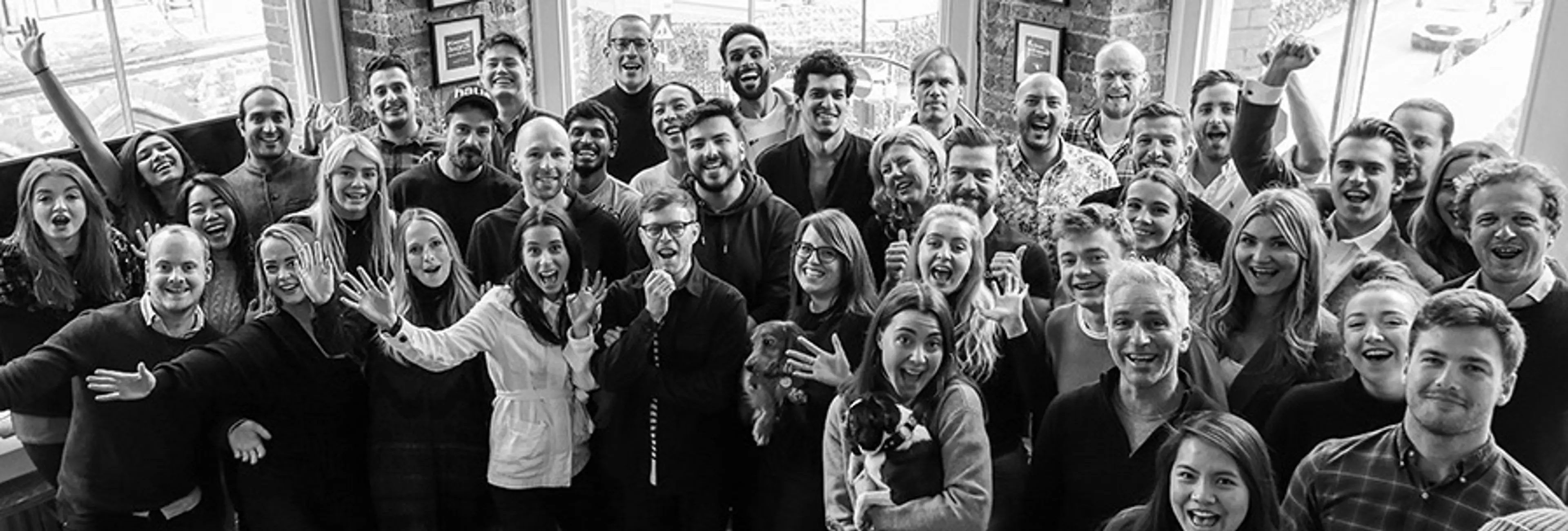
Luxury Commentary
1 Sept 2022
5 Min Read
Architecting Resilient Luxury Brands in the Face of a Recession
We’re in an economic downturn. One that will inevitably affect many of our clients, despite having largely affluent and high net worth customer bases. And while that’s not something to be proud of at a time like this, we sat down with our CEO and COO to talk through how luxury brands can succeed sensitively without the performative BS.
The cost of living is soaring.
It’s a banal observation, yes – yet its contribution to the looming recession, alongside staff shortages, supply chain crises and a slew of other post-pandemic nosedives, opens a dialogue for imaginative solutions in business boardrooms.
The recession’s impact on business and sales, particularly in luxury, is a question being intensely explored, from lengthy Linkedin comment threads to global headlines.
As a consultancy providing branding and digital services to luxury brands, we sat down with Matter Of Form’s CEO Anant Sharma and COO Fred Moore to get their thoughts on the recession’s impact on consumerism and the possibilities of recession-proof luxury.
Is Less More? Luxury Spending During Economic Downturns
Oddly, when the stakes are down people tend to exhibit a more reckless nature in their spending habits. We buy things to make ourselves feel better – a human urge that plays a part in luxury’s durability.
In the past, the ultra high net worth consumer has been relatively untouched by wider economic recessions. Luckily for luxury, brands often count on just 20% of their clientele – the very and ultra-wealthy – for the majority of their sales.
And although that’s a solid consumer base – as evidenced by brands like LMVH and Ferrari reporting strong sales in Q2 – this is a time for intelligent, imaginative brands to take centre stage, bolstering themselves through creativity and innovation without any gimmick or ignorance of current circumstance.
Hospitality & Travel Are Still Taking Off
As the cost of living crisis continues to squeeze and staff shortages throw spanner after spanner in the works, the demand for holidays is still nuts. An unsurprising demonstration of what consumers place value in following nearly two years of morale-crushing lockdowns.
Dining out, travelling, festivals, concerts, out-of-the-ordinary events – these kinds of capture-the-moment, memory-making experiences are far more resilient in times of economic depression.
The travel and hospitality sector’s pandemic-induced armageddon created a volatile environment for brands, the worst ever seen in this specific industry and perhaps the worst that will ever be.
Travellers being literally grounded for months on end will have no doubt contributed to the widespread carpe diem culture that is defining contemporary consumerism.
Overestimating Ecommerce
At the same time, eCommerce, while not necessarily on a downswing, isn’t performing as well as projected post-pandemic.
We saw such an extraordinary 12-18 month boom during COVID – in what’s an already rapidly expanding industry – but that acceleration is reversing big time this year. Likely because any disposable income is being funnelled into real-world experiences, in retail, travel, hospitality and beyond.
Embracing the moment is part of new luxury’s makeup.
And while that sentiment obviously plays out differently to an extent during a recession, it’s still a core part of the human condition.
The Pandemic Footprint: Deprioritising Digital?
It’s impossible to ignore COVID’s long-term impact on luxury business, consumer spending and recessionary pressures. Whatever demographic brands aim for or price point they offer, the pandemic normalised excessive online buying behaviour massively and investment in digital was forced to follow.
COVID consumerism’s hot bed of heightened online activity meant digital content had to be seriously upgraded to cater to digital demand. Even all the metaverse headlining boils down to a need for brands to invest in better immersive virtual experiences for their customer, especially in parallel with the return to reality and IRL retail.
And ad spend was always going to fall as cases dwindled and lockdowns eased, despite its unparalleled efficacy when people were trapped and tethered to their devices, believing they had money to burn.
So it’s not essential to deprioritise digital in the sense of a finite or even a necessarily significant cutback, but rather realising that digital no longer needs to be brands’ singular focus as it was throughout the lockdown period.
With COVID in our rearview, brands have to make that distinction between the role digital plays on their spectrum and its relation to brand discoverability, brand definition and brand expression.
What All This Means for Luxury
Asset wealth and inflation are differentiating this recession from its predecessors, yet what remains the same is the invulnerable status of the HNWI and therefore the luxury brands they buy from.
However, luxury’s enduring resilience shouldn’t be mistaken for immunity.
Luxury is changing, with new (unwritten) cultural codes and a previously imperceptible care for social issues now overt. It’s a time for brands who can balance branding and service, digital and traditional, to invest in savvy schemes and stand out in a way that highlights self-awareness yet steers clear of performative virtue-signalling.
With everything to play for, it’s a fairly level field if brands are ready to be bold.
What To Be Wary Of
- Tone Deaf Messaging
Sensitivity is important, particularly when the wealth disparity is bigger than ever. And as obvious as that may sound, social faux pas and cultural ignorance can be found fairly easily in brand messaging. People are so turned off by lazy or inconsiderate advertising, even in times when economies are flourishing, so be tactile with your service offering and marketing.
- The Danger of Slashing Budgets
Fight the temptation of tanking your marketing budget and ad spend. Always the first casualties under recessionary threats or simply slowing revenue, it can be a shortsighted short-term fix for brands. And the comeback can be cutthroat as brands who go all American Psycho on their marketing blueprints may easily lose market awareness and brand recognition to those who ride the wave.
If you'd like to discuss how we partner with timeless luxury brands to provide brand strategy, digital experience design and innovation consultancy, please get in touch via [email protected] to arrange a time to speak with our team of consultants about our services.
Luxury Commentary


